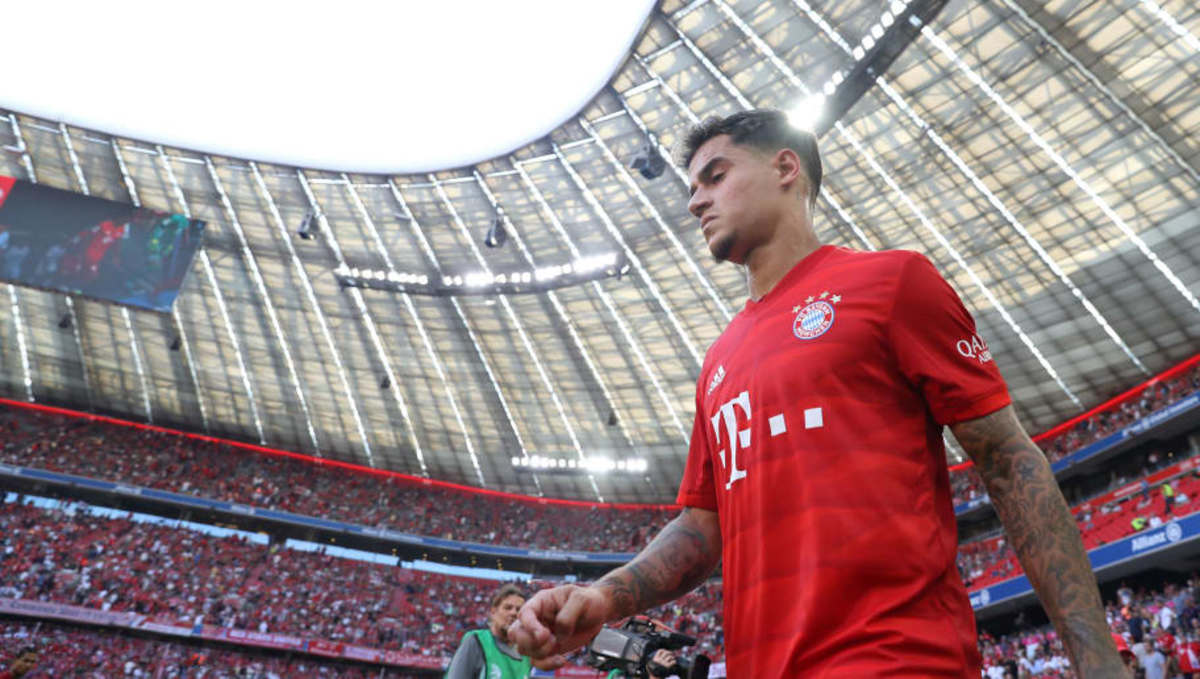Philippe Coutinho: A Key Element of Bayern Munich's Evolving Approach to Transfers

This summer certainly wasn't the start of an overhaul at Bayern Munich, but changes on the pitch and in the dugout over the last 12 months will continue throughout the next two years as key decision-makers Uli Hoeness and Karl-Heinz Rummenigge prepare to leave.
The latter won't be stepping down until 2021, but club president Hoeness will not run for re-election in November, ending a spell at Bayern Munich is some capacity or another which has lasted almost 50 years.
Something which has been paramount during that time is Hoeness' influence on Bayern Munich, and even German football as a whole, but a summer move for Philippe Coutinho might have offered an insight into one small aspect of the club which has already changed.
The Rekordmeister don't have a long history of signing players from Brazil, but after a string of largely failed signings during the late 1980s and early 1990s, Hoeness developed a convention which has lasted almost 30 years.
As Uli Hesse explains in Bayern: Creating a Global Superclub, the signings of Bernardo and Mazinho from São Paulo and Bragantino respectively were the catalyst for Hoeness to decide he wouldn't sign Brazilian players without any Bundesliga experience.
It wouldn't be long before Hoeness put that plan into action, snapping up Jorginho from Bundesliga rivals Bayer Leverkusen the following season.
He went on to make 80 appearances for Bayern Munich and even won the World Cup with the Seleção before moving to Asia in 1995, the first in what would be a long line of Brazilian stars to succeed in Bavaria.
Giovane Elber was next to make the move to Bayern Munich, this time leaving VfB Stuttgart where he'd scored 44 goals and won a DFB-Pokal during his three-years at the club.
Arguably the club's most effective Brazilian player, Elber currently sits behind just Robert Lewandowski and Arjen Robben as Bayern Munich's third top-scoring foreigner, while he's also got the second most appearances in Bavaria out of any South American player.
Further down the line Paulo Sérgio, Zé Roberto and Lúcio all joined, still following Hoeness' policy, but Bayern Munich bucked that trend when they signed centre-back Breno directly from São Paulo in 2008.
The €12m signing spent four years in Germany, including a loan spell in Nürnberg, but Breno eventually left the club after an underwhelming time and even took a two-year sabbatical from professional football, returning to São Paulo in 2014.
Bayern Munich and Hoeness returned to their tried and trusted policy to sign Luiz Gustavo, Rafinha and Dante, but they again broke tradition to bring Douglas Costa to the Allianz Arena from Shakhtar Donetsk.
While the Brazil international was an inevitable talent for Bayern Munich, especially under Pep Guardiola, Costa ultimately proved to leave the club without making too much of a lasting impact as a result of injuries and the appointment of Carlo Ancelotti.
But four years after Costa joined the club, Hoeness made one of the most talked about signings of the summer transfer window by luring Coutinho away from Barcelona on an initial loan deal, which includes the option to buy him for a club-record €120m.
It might not be the first signing Bayern Munich have made that breaks Hoeness' policy, but taking a gamble on a Brazil international without any Bundesliga experience just before a shakeup behind the scenes offers a sign that serious change is on its way to Bavaria.
The club have broken their record signing twice in the last two years, and during the most recent transfer window, Bayern Munich spent more money on new players than in any other season in their history.
The loosening of the purse strings at Säbener Strasse might be a more well-known change that's happened in recent years, but that along with ditching their policy on Brazilian players could be an insight into how Bayern Munich plan to return to Europe's top table in their post-Hoeness era.








